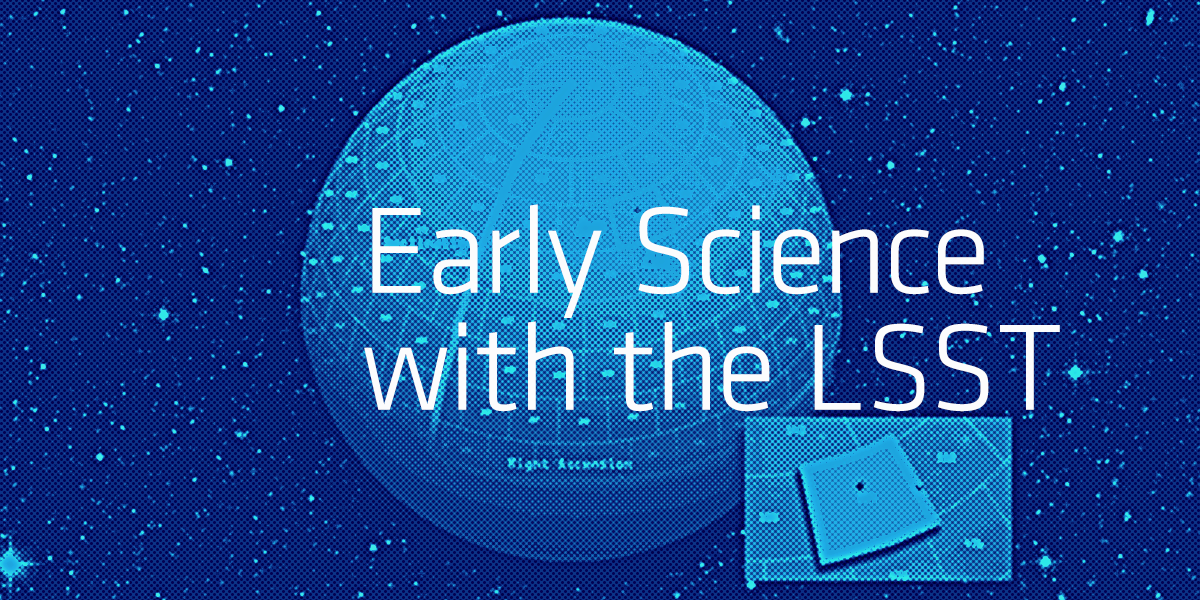New Scialog in 2024: Early Science with the LSST

Image: Rubin Obs/NSF/AURA
(NOTE: The first meeting in this series has been rescheduled for November 14-17, 2024, to more closely coincide with the first release of LSST data.)
Research Corporation for Science Advancement and the Heising-Simons Foundation are cosponsoring a new initiative, Scialog: Early Science with the LSST. With the goal of advancing foundational science needed to realize the full potential of the Vera C. Rubin Observatory’s upcoming Legacy Survey of Space and Time (LSST), the initiative will hold the first of its series of annual meetings in May 2024 in Tucson, Arizona.
The Rubin Observatory, previously referred to as the Large Synoptic Survey Telescope, is currently under construction in north-central Chile. Combining an 8.4-meter primary mirror, the world’s largest digital camera, and a complex system to process and store more than 20 terabytes of data each night, its primary task will be to carry out the 10-year LSST astronomical survey beginning in late 2024.
Data from the LSST could spark an extraordinary era of discovery, said RCSA Senior Program Director Richard Wiener.
“This open-access dataset will be higher in volume, velocity, and complexity than any previous astrophysics experiment, but current gaps in capabilities risk limiting the science that can be done,” he said. “This Scialog series aims to mitigate impediments by providing seed funding to ignite LSST discoveries as the initial wave of data becomes available, and creating critical cross-disciplinary connections required to tackle the biggest questions LSST is poised to address.”
Scialog: Early Science with the LSST will facilitate connections between approximately 50 early career observational astronomers, cosmologists, theoretical physicists and astrophysicists, computational modelers, data scientists, and software engineers, with the goal of catalyzing collaborative projects to help advance the astronomy community’s ability to address fundamental questions about the Universe using this unprecedented dataset.
“The Rubin Observatory's ability to survey the entire sky in only a few nights will unleash torrents of data, whose analysis will be provided by a newer and larger group of scientists than has ever tackled astronomy before,” said Cyndi Atherton, director of the science program at Heising-Simons. “As we expand to include new thinking, new scientists, and new ways of doing science, we will gain new insights and understanding into what comprises the Universe and our own Milky Way and how that has changed over time. The participants in this Scialog will help shed new light on much of what we see and cannot see.”
This will be the third Scialog initiative cosponsored with the Heising-Simons Foundation, following Time Domain Astrophysics (2015-2019) and Signatures of Life in the Universe (2021-2023).
Throughout its history, RCSA has supported the advancement of astronomy and the development of new telescopes. Among RCSA’s contributions have been support for Grote Reber and the birth of radio astronomy in the 1930s and 1940s, initial funding for what would become the Five College Radio Observatory in Massachusetts in the 1960s, and a $12 million commitment in 1992 to help launch the development of the Large Binocular Telescope on Mount Graham in Southeastern Arizona. In the early 2000s, RCSA also provided grant support for the Kitt Peak National Observatory and the Mt. Lemmon SkyCenter science learning facility north of Tucson and funded the initial series of the public radio program “Earth and Sky” in collaboration with Google.
RCSA played a critical role in the Rubin Observatory’s creation 20 years ago. With an up-front commitment of $10 million toward the project, it provided foundational financial and business support to launch the telescope's construction, including the design and construction of its primary mirror starting in 2007.
RCSA also helped establish the LSST Corporation (LSSTC) as an independent, nonprofit organization to catalyze the observatory project. RCSA was among four founding members of the LSSTC, headquartered in Tucson, which is now a coalition of more than 30 institutional members invested in maximizing science and community building with the LSST.
The Rubin Observatory, which officially began construction in 2014, is now funded by the National Science Foundation and the Department of Energy, with private funding raised by the LSSTC.
“Holding this Scialog is the perfect next chapter in RCSA's relationship with LSST, by bringing catalyzing resources to the scientific community to make the decades-long anticipated discoveries with the data,” said LSSTC CEO and Director for Science Beth Willman, who is serving in an advisory role in the planning of this Scialog. “Initiatives like this provide the creative breathing room and resources needed to break open new areas of inquiry that could lead to unanticipated discoveries.”
“The 10-year LSST has been designed to revolutionize our understanding of the Universe on scales from our solar system to galaxies to dark matter and dark energy,” she said. “It could be the most productive astronomy experiment of all time.”
Scialog is short for “science + dialog.” Created in 2010 by RCSA, the Scialog format creates interdisciplinary communities of early career scholars to push the boundaries of knowledge aligned with each theme. At conferences, participants led by a group of senior facilitators discuss challenges and bottlenecks, build community around visionary goals, and seek collaborators for high-risk, high-reward pilot projects they pitch at the conferences.
Participation in the series of three-day meetings in Tucson is by invitation. Click here for details on nominating yourself or an early career colleague to be a Fellow.
Research Corporation for Science Advancement, founded in 1912, is a Tucson-based private foundation that funds early stage, high-potential basic research in the physical sciences (astronomy, chemistry, physics, and related fields) at colleges and universities in the United States and Canada.
The Heising-Simons Foundation is a family foundation based in Los Altos, California. The Foundation works with its many partners to advance sustainable solutions in climate and clean energy, enable groundbreaking research in science, enhance the education of our youngest learners, and support human rights for all people.




